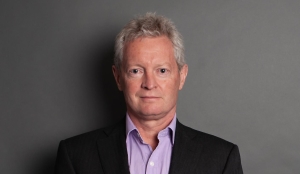The Court of Appeal upholds the High Court's decision that Warner-Lambert's second medical use patent for pregabalin is partially invalid and as a result not infringed
The Court of Appeal upholds the High Court's decision that Warner-Lambert's second medical use patent for pregabalin is partially invalid and as a result not infringed
In a long awaited decision handed down yesterday, the Court of Appeal upheld the first instance decision of Mr Justice Arnold in the Patents Court that claims 1 and 3 of Warner-Lambert's second medical use patent (EP (UK) number 0 934 061 B) covering the use of pregabalin for the treatment of pain and neuropathic pain respectively were invalid for insufficiency.
Warner-Lambert, through Pfizer Ltd, markets pregabalin under its trade mark Lyrica for the treatment of neuropathic pain as well as the previously known indications of general anxiety disorder (GAD) and epilepsy.
Mylan and Actavis initiated revocation proceedings against Warner Lambert's patent in June and September 2014 respectively. Warner-Lambert subsequently issued infringement proceedings against Actavis in respect of their intended launch of their generic pregabalin product, Lecaent, to be marketed for the treatment of epilepsy and GAD.
Insufficiency of claims 1 and 3
The Court of Appeal upheld the first instance Judge's findings as regards the insufficiency of claims 1 and 3. The Court agreed with the Judge's construction of the terms pain and neuropathic pain and found that both claim 1 (use of pregabalin for treating pain) and 3 (use of pregabalin for treating neuropathic pain) were invalid as not being plausible across their breadth. The basis for these findings was the lack of data in the patent to support a claim to the use of pregabalin to treat central neuropathic claim.
In the course of its Judgment, the Court of Appeal also rejected Actavis's argument that the patent did not make plausible a claim that pregabalin was effective to treat peripheral neuropathic pain. In so doing, the Court of Appeal commented that the test for plausibility represents a low threshold and rejected the argument that the test for plausibility should be aligned with that sometimes used for obviousness namely that the reader of a patent needs to be encouraged to try the invention with a reasonable expectation of success.
Application to amend claim 3 refused as an abuse of process
Following the first instance Judgment handed down in September 2015, Warner-Lambert made a conditional application to amend claim 3 so as to limit the scope of the claim to peripheral neuropathic pain in order to avoid the insufficiency attack. Warner-Lambert's application to amend was refused by Mr Justice Arnold on the ground that it amounted to an abuse of process.
The Court of Appeal upheld the Judge's decision on the facts and in particular that it had been open to Warner-Lambert to have indicated before the commencement of the trial that it would seek to amend its patent in the event that it was found invalid for insufficiency.
Direct & Indirect Infringement of Second Medical Use Claims
Given that the Court of Appeal maintained the Judge's finding that claims 1 and 3 of the patent were invalid, Warner-Lambert's infringement claim failed. The Court of Appeal nevertheless thought that for various reasons it was appropriate to comment on the construction of second medical use claims in Swiss form.
Direct Infringement of Swiss form claims
In an earlier appeal hearing on the application for an interim injunction, the Court of Appeal had stated that "the skilled person would understand that the patentee was using the word "for" in the claim to require that the manufacturer knows [including constructive knowledge] or can reasonably foresee intentional use for pain, not that he have that specific intention or desire himself". In his first instance Judgment handed down in September 2015, Arnold J had expressed considerable doubts as to whether this interpretation of a Swiss form claim was correct but had nevertheless decided to follow it.
Having reviewed various decisions from other European jurisdictions on the interpretation of Swiss form claims, the Court of Appeal commented that an objective approach was necessary: "From an objective standpoint one would normally regard a person to intend what he knows or can reasonably foresee as the consequences of his actions." The Court of Appeal further commented that "the intention will be negatived where the manufacturer has taken all reasonable steps within his power to prevent the consequences occurring".
The Court of Appeal said that the first instance Judge had been wrong "in seeking to dissect the requirement for intentional treatment of pain" and thereby considering the position of the doctor, the pharmacist and patient; the requirement was simply whether the manufacturer knows or is able to foresee that there will be intentional use of the drug for the new medical indication. In other words, the first instance Judge should have considered whether "Actavis knew or could foresee that at least some of the prescriptions written generically for pregabalin to treat pain would in fact be fulfilled with Lecaent".
Indirect infringement
In the earlier appeal hearing, the Court of Appeal had stated that "when section 60(2) speaks of "putting the invention into effect", it may be legitimate to look not just at whether any one person is carrying out the invention". The first instance Judge had held that because there is no downstream manufacture from Actavis although the API in the generic product was means essential it could not be said to be suitable for or intended to put the invention into effect because this had already occurred.
The Court of Appeal commented that, as the invention was understood to be the use of pregabalin in the preparation of a pharmaceutical composition for treating pain, the process would not necessarily be completed when the pregabalin had been formulated into a pharmaceutical composition by a manufacturer. The Court of Appeal considered that the process of preparing the composition could continue through any packaging step performed by the manufacturer and include a labelling step performed by a pharmacist.The Court of Appeal therefore disagreed with the first instance Judge that there could not be a relevant act of preparation by a pharmacist and therefore at least a prospect of downstream manufacture in certain cases.



